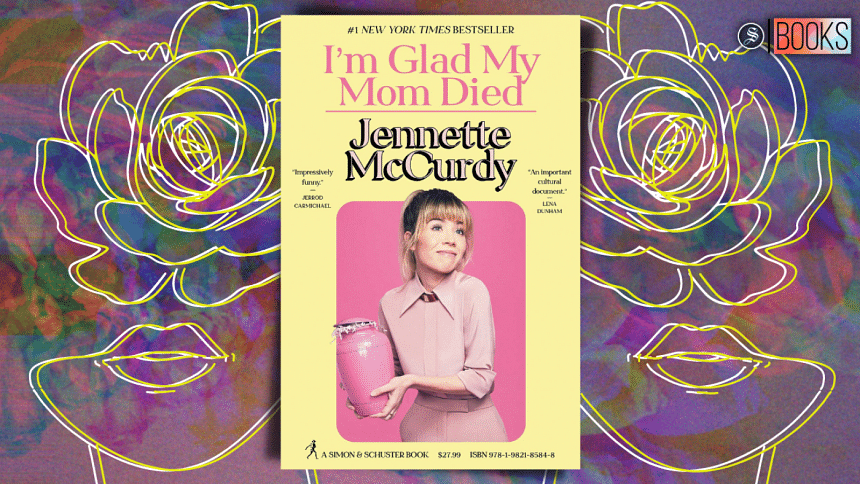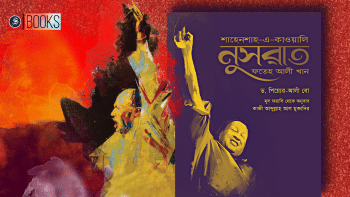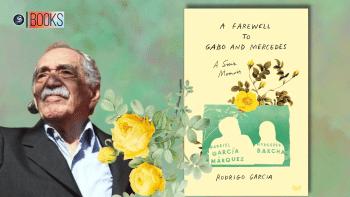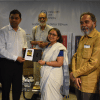Jennette McCurdy explores grief in its most complex form

I'm Glad My Mom Died (Simon & Schuster, 2022) written by former child actress, Jennette McCurdy, has been one of the most anticipated memoirs to come out this year. Even with the harsh blowback the book received by many upon the reveal of its daring title, Nickelodeon and iCarly fans counted down the days with bated breaths until they could finally feast their eyes on all the backstage drama and the mystery behind McCurdy's seven year long break from the spotlight. As the day of the release arrived, media portals flooded the internet with articles about Jennette McCurdy's dark history with Nickelodeon and her feud with co-star and global pop-star, Ariana Grande. What got overlooked in the process was the very heart and soul of the book and McCurdy's complex and brave account of what it is like to simultaneously grieve and rejoice in the loss of an abusive parent.
In many ways, McCurdy's story is not so different from the classic tale of almost every other Hollywood child star with a stage mother who indulges in her dose of fame by living vicariously through her children. But what makes this particular narrative stand out among the rest is McCurdy's unwavering devotion to honesty even in moments that are difficult to read, let alone write. Much like life itself, this book does not follow the typical three-act structure. Rather, McCurdy divides the book into two phases of her life, "Before" and "After", referring to the time before and after her mother's death.
The "Before" portion of the book starts from when McCurdy is two years old and covers her entrance into the acting world—with small roles at first before getting a permanent placement at Nickelodeon's iCarly. The narrative in the "Before" is written from a place of childhood naivety in which McCurdy as the narrator is oblivious to the abuse that her mother is inflicting upon her. The childlike perspective through which the story is told allows for an uncomfortable depiction of events in which we are given access to two different versions of reality simultaneously: what a young McCurdy says happened versus what we, as adult readers, understand to have actually happened.
The different ways in which McCurdy is abused by her mother in the name of love is too long to list. From teaching her about "calorie restriction" and kick starting her struggles with eating disorders, to giving her showers and full-body examinations till the age of seventeen, there is just about no boundary that McCurdy's mother did not cross. However, what truly makes these events as appalling and heart wrenching as they are, is a young McCurdy's desperate attempts at gaslighting herself into believing that these things were all being done to her out of love, something that continues throughout the book, all the way until her mother passes.
If the "Before" functioned to painstakingly build up the tension, almost like a held breath, then the "After" is when the breath is finally released and all the emotions come crashing down all at once. Following her mother's death, McCurdy's mental health gets much worse before it finally starts getting better. Whereas the "Before" felt more like an invasion of McCurdy's physical space, the "After" feels like an invasion of her mental space, as we accompany our narrator while she confronts truths about her childhood that very few would have the courage to admit. It is in a therapy session several years after her mother has died that McCurdy is finally able to lookback and recognise the abuse she had endured. What follows is a disarray of various conflicting emotions, and multilayered grief; "the initial grief from her [McCurdy's mother] passing, then the grief of accepting her abuse and exploitation of me, and finally, the grief that surfaces now when I miss her and start to cry".
As a child of a Bangladeshi household, it is this portion of the book that hit closest to home. McCurdy's resentment towards her mother, followed by the guilt for being resentful, is a cycle that is familiar to anyone who has undergone childhood trauma at the hands of an abusive or controlling parent. Particularly in Bangladeshi society where revering one's parents is deeply imbedded in the cultural norm, McCurdy's contradicting feelings towards her mother encapsulates perfectly the struggle many of us have in wanting to stand up for ourselves, but also be the obedient children our parents want us to be. For situations such as this, I'm Glad My Mom Died can serve as a dark but also humorous and empowering reminder that you can still love your parents while not loving the abuse that they inflict upon you.
Shanjida Nowshin Chowdhury is a contributor at Daily Star Books and an MA student at the University of Liberal Arts Bangladesh (ULAB).

 For all latest news, follow The Daily Star's Google News channel.
For all latest news, follow The Daily Star's Google News channel. 











Comments